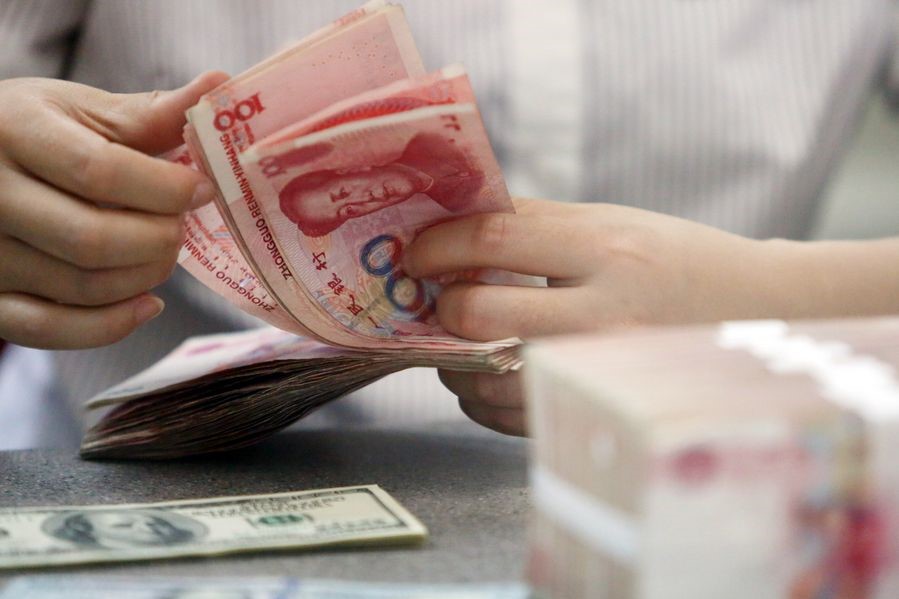Regulation system will ensure financial stability


Financial regulation aims to solve problems including market failure and negative externality to sustain the efficiency of the financial system, with market failures requiring different regulatory agencies and policies to deal with.
The current models of financial regulation adopted worldwide can be divided into two categories based on different regulation methods — the institutional approach and the functional approach.
China operates under the institutional approach, a form of financial regulatory oversight based on an entity's legal status and permissible business activities. That means, the entity's legal status as a bank, a broker-dealer or an insurance company, and business scope essentially determine which regulator is tasked with overseeing its activity. To put it simply, the agency that issues the license has jurisdiction over the firm.
Based on the regulatory aims, financial regulation can be divided into behavioral regulation and prudential regulation. In terms of the design of various regulatory agency frameworks, financial regulation can be divided into separate supervision — the "twin peaks" model and the integrated model.
In the past two decades, the supervision approaches in different countries have been evolving. Experts have pointed out that the efficiency of financial regulation depends not only on the supervision models but also on the implementation of supervision in practice.
China's macro-prudential policies mainly focus on three fields — real estate, cross-border capital flow and commercial banks — systemically important institutions, financial holding companies and critical infrastructure. The three areas are prone to cause systemic risks.
However, there is still room for improvement in China's financial regulation system.
The separate and institutional supervision model has resulted in some uncovered areas in supervision like shadow banking and digital finance, as well as room for enhancement in policy coordination.
After the reshaping of regulatory agencies in 2017 and 2018, policy coordination has been greatly improved, but has not become as ideal as expected.
Supervisory agencies need to improve their professionalism, independence and even authority of regulation to better achieve regulatory policy goals.
If development is a major policy goal, regulators may increase their tolerance for risk, because only in this way can rapid development be achieved. On the other hand, if regulatory authorities have a very low tolerance for default or bankruptcy, that will have a detrimental effect on the healthy development of the financial industry.
Finally, as the macro-prudential policy framework in China is at an early stage of development, the implementation of relevant policies sometimes tends to bump into obstacles.
Real effects
After 40 years of effort, China has established a financial regulation system with agencies, personnel, goals, rules and tools all in place. The only problem is how to deliver the real effects of regulatory policies, which will be a focus of next-stage reforms in not only the financial regulation system, but also a broader prospect.
In the past, the Chinese government to some extent took on the role of the market, which was not always harmful. For instance, China avoided the financial crisis that hit many other countries in 1997 and 2008, respectively, largely because its government backed financial stability.
In terms of financial regulation, the line between the government and financial regulation agencies was obscure in the past. The government helped a lot in achieving financial stability.
The separation of roles between the government and financial regulation agencies is needed on the premise of cooperation and coordination.
When should the government intervene in financial risk management? In principle, there are two scenarios.
One is when facing the threat of systemic financial risk, during which it is impossible to completely tackle the problems within the financial system alone.
The second is policy-based financial responsibilities — the government should take the initiative to bear such financial costs; for instance, a loan program for micro, small and medium-sized enterprises during the pandemic.
As for financial regulation reforms in the next phase, the key is to honor the science of finance and implement financial regulation down to the grassroots.
The first task is to set clean supervision objectives of ensuring fair competition, protecting the interests of financial consumers and maintaining financial stability.
All other responsibilities like economic growth and macroeconomic development should not be the reason to adjust financial regulatory policies, as stabilizing the financial system is the greatest contribution to the economy.
In light of such supervision goals, supervision agencies must enjoy a certain degree of independence, professionalism and authority.
Independence does not necessarily mean the establishment of a completely independent institution but that the supervision departments must have sufficient authority and professionalism to make regulatory policy decisions.
At the same time, agencies must have the authority to punish violations of rules and laws and make such violations too costly for industry practitioners so that market disciplines will triumph.
Also, no matter how financial regulation is organized and implemented, the supervision effects matter most. What needs to be avoided is blaming practitioners every time there is a problem.
If something goes wrong with a financial institution, efforts should be made to deal with that organization's problems. If many such institutions have the same problems, then there must be something wrong with the regulatory rules and their implementation.
Of course, taking regulators for accountability should avoid being extreme and de-energizing the financial system.
Regulators also need more resources like people and funds to strengthen their supervision capability, so that the regulatory system remains stable and China's policy target of firmly holding the bottom line of no systemic risks is met.
The article is a translated version of excerpts from a book he authored discussing financial reform, innovation and supervision in China, published in 2021, before the formal establishment of the country's National Administration of Financial Regulation last month.
The views don't necessarily reflect those of China Daily.
The writer is deputy dean at the National School of Development of Peking University and director of the university's Institute of Digital Finance. He is also a member of the China Finance 40 Forum, a think tank.




































